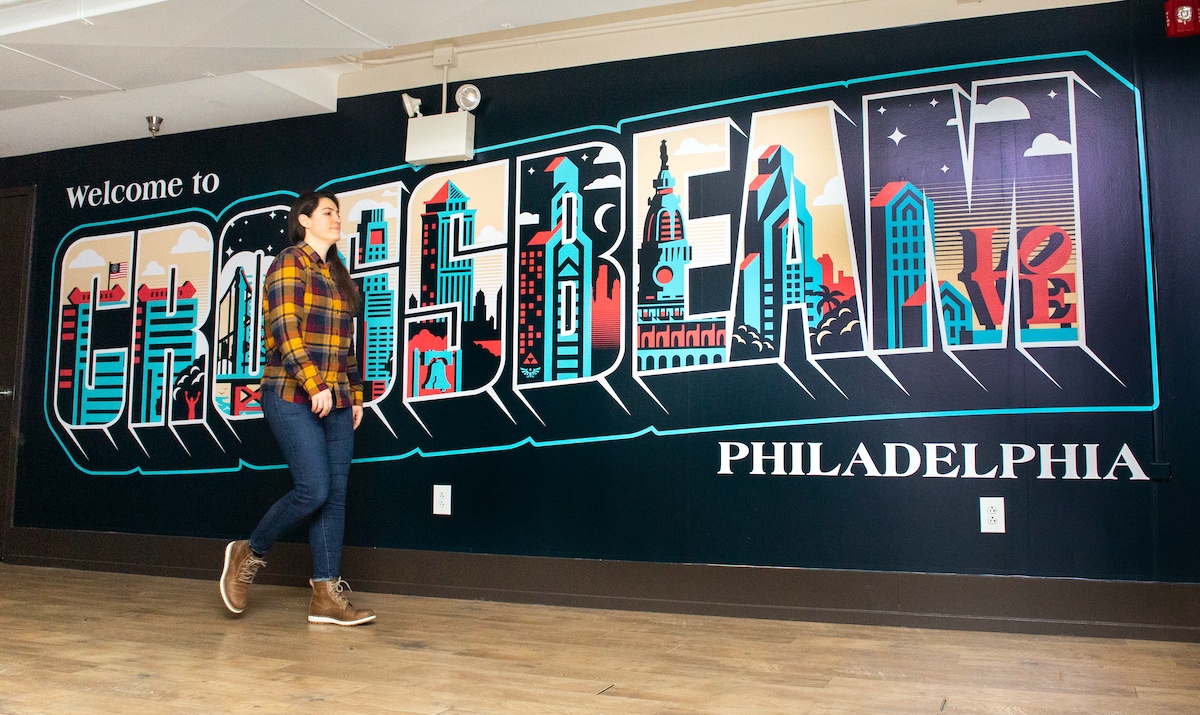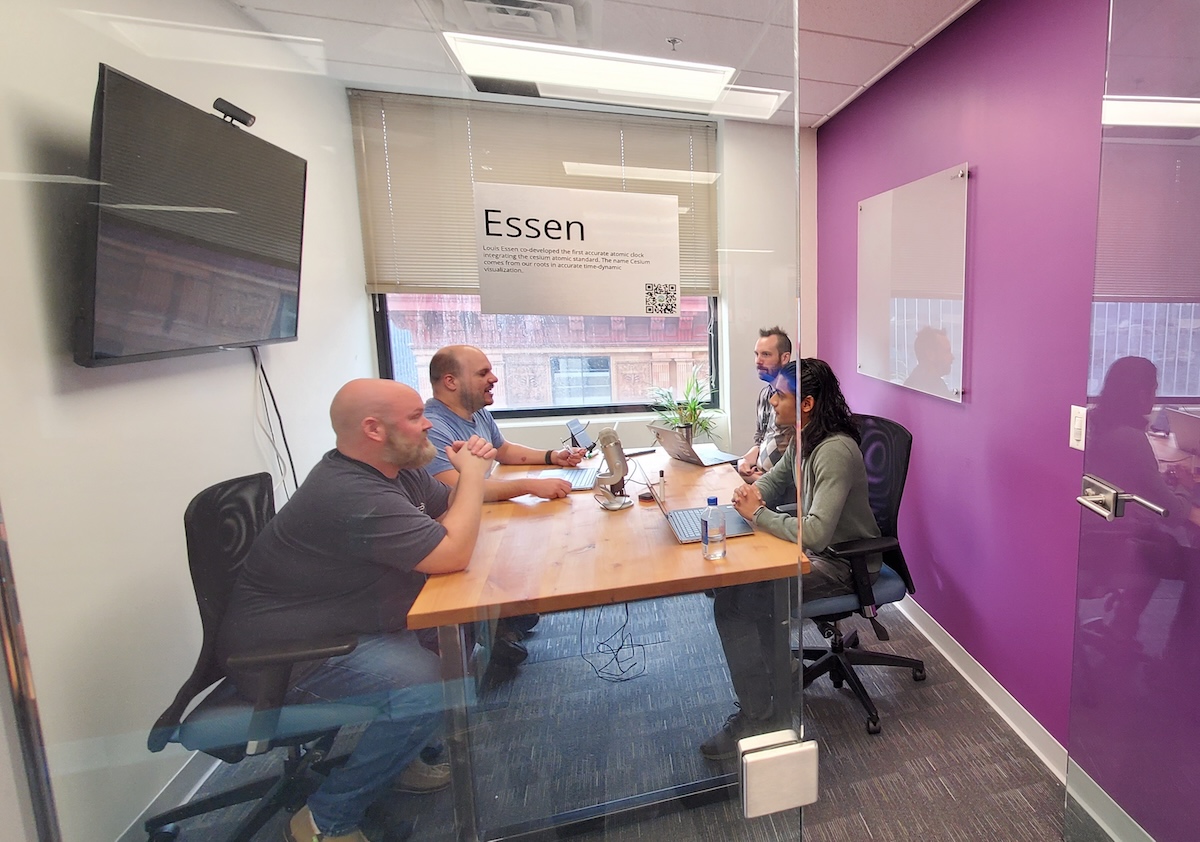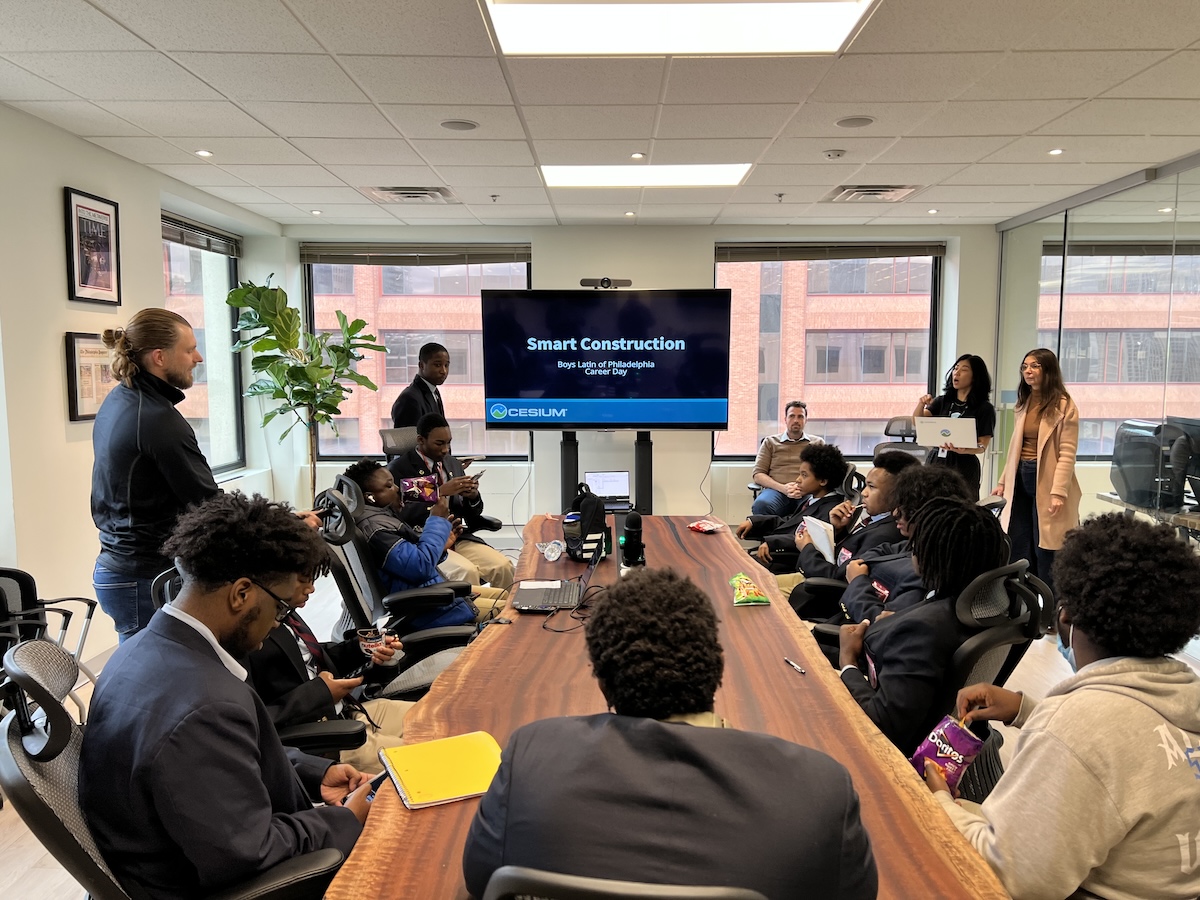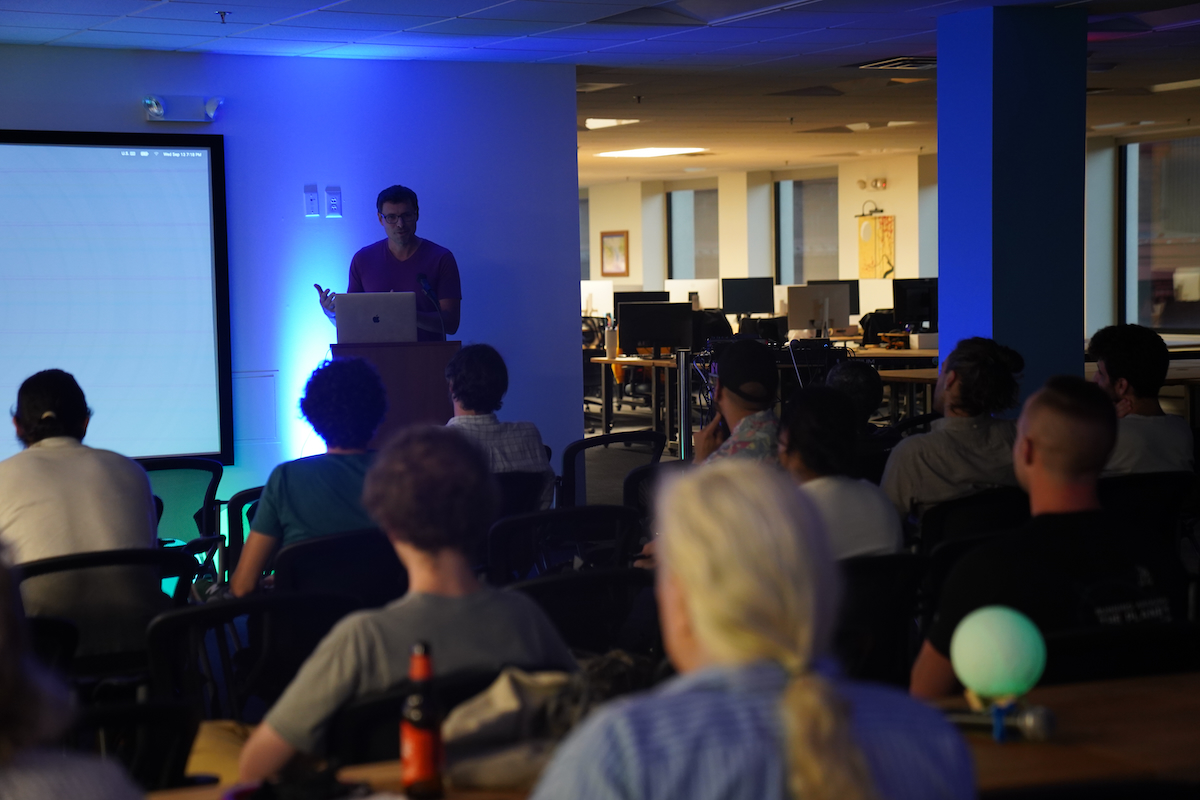For some, lengthy, expensive leases are finally up and CEOs are closing the doors as a money-saving measure. For others, in-person collaboration feels like an essential cost of their company and community culture.
About 80% of CEOs signaled in a recent survey that they would be tracking employee attendance this year, and some Philadelphia corporations have followed a similar pattern.
In fall 2022, Comcast began requiring employees to be in its Center City tower three times a week; a year later, that count jumped to four. Earlier this month, Independence Blue Cross made the same announcement for 3,000 of its employees. These employees were previously “hybrid of choice,” meaning they could choose when, if at all, to work from one of the company’s Center City or Plymouth Meeting offices.
But the decision is much more divided for startups and growth-stage companies in the region.
Crossbeam: Trading an office for a coworking space
SaaS company Crossbeam, which was founded in 2018 and focuses on data-driven partnerships, closed its Center City office recently. CEO Bob Moore told Technical.ly they faced a “go or no go” situation with their lease in the Philadelphia Building ending, and had to reflect on the true utility of their Philly space.
When they leased the office pre-pandemic, about half of the company’s 25 or so employees lived in the Philadelphia area, and company leadership expected to double that number pretty quickly, Moore said. But years later, only about 20 of Crossbeam’s approximately 100 employees are in the area, and about five or so would use it on a daily basis.
“The irony was, despite the fact that we’re paying for this office in Philly, it’s too big for the people that want to work there every day, and it’s too small for us to hold off-sites and whatnot with everyone there,” Moore said.

Instead, they’ve allocated the office budget into a Deskpass subscription for every employee. The service allows users access to thousands of coworking spaces, conference rooms and private offices. Since implementing this change, Crossbeam has now technically been more “in office” than the last several years because its remote employees across the globe can now work in person somewhere.
Now, if you walk into City Hall-adjacent Mindspace on any given day, you’ll probably spot a gaggle of Crossbeam employees, Moore said.
“This also has just opened up access for people that want to gather,” he said.
QuotaPath: Trading a coworking space for remote work
AJ Bruno, CEO of Philly- and Austin-based QuotaPath, also used to gather his local team at a private office in Mindspace, but recently let the membership lapse. Around 15 to 20 people would use the space regularly, and most were on the engineering team. A larger office, serving about 50 people in Austin, is still active. The company has about 10 other remote employees scattered across the country
Cost was the main factor in the decision, Bruno said, as was listening to how his team wanted to work.
“It’s great to get people together,” he said. “We just had a product and engineering offsite. But the majority of that team prefers remote, work-from-home culture.”

Before the pandemic, Bruno saw the tech world becoming increasingly more remote friendly, but he didn’t predict it for his own company. His personality and his “superpowers” flourish with in-person collaboration, he said.
“I do think there’s this challenging spot that a lot of founders and operators are in that, I know in their heart of hearts that if they could get the entire team together every day, they feel that is going to create the best ROI and the most production,” he said.
But realistically, in 2024, to hold onto good talent, you’re going to have to let some decisions be influenced by your team.
“Your team is going to dictate the type of work, where they do their best work,” Bruno said. “And if that’s the feedback, it’s literally you can change your team over. But I like my team, and that’s not what I want to do.”
Common Paper: Remote from the start
Cofounders Jake Stein and Ben Garvey of contract management software maker Common Paper both have spent the vast majority of their careers building in-person tech teams. The pair met at Center City-headquartered RJMetrics, which Stein cofounded alongside Crossbeam’s Moore in 2009.
Hiring for RJMetrics sometimes had its challenges, Stein told Technical.ly: Junior devs and generalists were easier to find, but with specialists and executive hires, they sometimes had to persuade candidates to make the move to Philadelphia. There were times the company lost talent because an employee wanted to move away for personal reasons. The company’s head of people put a lot of research into remote work policies but it felt “just like a different culture and way of being” at the time, Stein said.

In 2021, two years after Garvey opened Betterment’s Philly satellite office, Garvey and Stein launched Common Paper together as a fully remote company. The pair are both in the Philadelphia area, as is about half of the company’s nine-person team, but they never considered opening an office.
“We thought, ‘What a great recruiting advantage we would have if we were open to the entire world,’” Stein said of the decision.
The pair feel that Philadelphia is part of Common Paper’s identity, but that it also has the identity of all the places their employees live. Stein also acknowledged the costs of remote work — he can’t catch up with coworkers in person or grab a beer with them after work.
“There’s definitely tradeoffs, on balance,” he said. “I prefer this way of working. But I think it’s also probably specific to certain companies. I could imagine doing lots of other things, and maybe the tradeoffs would go the other way.”
Cesium: Maintaining an office and community hub
For geospatial software company Cesium, the scale tips in favor of in-person work. The 60-person company has an office at Fourth and Market streets in Old City, which serves its local, hybrid workforce. The company does have some distributed employees, but CEO Patrick Cozzi said for a growth company like his, in-person work brings them a lot of advantages.
“It’s essentially like a physical manifestation of your values and your culture,” Cozzi said. “I think that goes a long way.”

The space also regularly welcomes local tech meetups and events with groups like Black Tech Philly, Philadelphia Data Visualization Meetup, (co-organized by Common Paper’s Garvey), the Philadelphia JavaScript Club and the local chapter of SIGGRAPH.
Philly tech companies have a long history of donating their offices to local meetups, from Center City’s Guru as a stop during Philly Music Fest to Arcweb’s Old City hub as a landing pad for a score of local tech groups — that is, before the software company closed its office at the end of 2022.
Providing a space for the Philly tech community to gather felt essential to Cozzi in finding a physical office. He grew up in the area, is a University of Pennsylvania grad and aimed to build Cesium here.

Since the pandemic has died down, Cozzi has felt a resurgence of activity in the tech scene here. Candidates seem more willing to move to Philadelphia recently, and every meetup they’ve held in the past few months has been full to the brim.
Hosting meetups isn’t necessarily a recruiting strategy, but Cozzi said he likes to maintain connections with the groups and local universities. Overall, getting people together, whether it’s his employees, or other local technologists, is good for Philly’s growth.
“I think it is going to become really valuable,” he said, “and it’s kind of a long game.”







